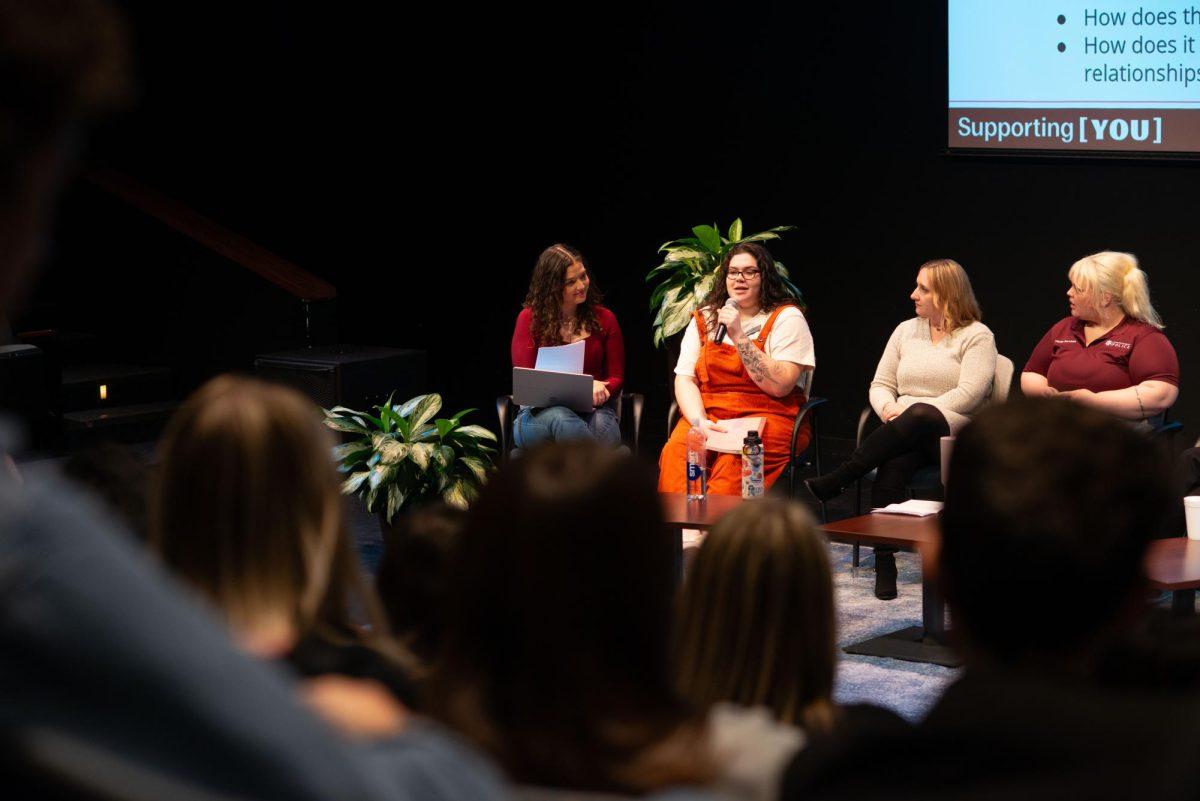Online media and culture often conflates love and obsession. However, local psychology experts look to educate and spread awareness on the subject.
Hosted on Jan. 30, the Stalking for Love: Prevention and Awareness Panel analyzed how media portrays stalking, the behaviors associated with stalking and what students can do to prevent or avoid becoming a stalked individual.
Students may hear attitudes similar to “I really like this person, so I went ahead and found out everything about their life.” The panel discussed that while this may seem like a joke, these playful but harmful comments become some of the first signs of stalking.
Denise Crisafi, Ph.D., coordinates interpersonal violence prevention and health promotion within Texas A&M’s Division of Student Affairs. Crisafi said many students say they’ve experienced stalking, dating violence or tracking but don’t report it.
“The main reason for this is that they felt like it was their fault, people would blame them or they brushed it off as ‘Maybe it wasn’t that serious as I thought it was,’” Crisafi said.
Answering a poll during the panel, audience members said the Netflix original show “You” and its character Joe Goldberg was a popular example of stalking depicted in media.
“After the first season of ‘You’ came out … people would say ‘I would let him stalk me and assault me,’” Crisafi said. “At the time, it may be joking however, when we normalize these toxic traits, it becomes more difficult for survivors and is not beneficial for anyone.”
A video played during the panel said movies and television shows often present stalking-like behavior as a harmless or endearing part of romantic courtship.
Kensley Clark is a part of Phoebe’s Home, the Outreach and Prevention Coordinator Against Domestic Violence.
“These behaviors portrayed in media that are actually stalking are normal for our generation and culture to laugh and joke,” Clark said.
Crisafi said the trope of pursuing someone even after being rejected is an incredibly concerning behavior. While people may joke about stalking, Crisafi said she wants others to know that stalking is the number one behavioral predictor of whether a sexual assault will occur.
Victim Advocate at the University Police Department Jessica Laney explained how these portrayals of stalking in media are harmful.
“‘If she says no to me last time, but if I show up this time and try again and again, then I can win her over when …,’” Laney said. “In reality, abuse starts out with these small, recurring patterns of stalking.”
Lindsey LeBlanc, the executive director at the Sexual Assault Resource Center, said social media may have negative moments, but a few positive ones have come from social media developments, such as support groups and the #MeToo movement.
While it suggests that only women are affected by stalking, Kacey Sisson, the owner and founder of Kacey S Consulting Marketing Agency in Downtown Bryan, reinforces otherwise.
“A lot of these portrayals of stalking are about a man seeking women,” Sisson said. “However, it does not just happen to women from men. It does not matter who you are. People are people, and anyone can behave however they want to no matter what the consequences are.”
Madelyn Cavazos, a bilingual survivor advocate at Unbound Now, expanded on this sentiment.
“When a woman is the one stalking, it’s comedic and weird from the norm of the man filling this role, even though they’re essentially doing the same thing, but since it’s a woman and she’s traditionally not meant to be the pursuer, its meant to make you feel like it’s a strange thing,” Cavazos said.
Crisafi said discussing others who may be affected doesn’t minimize violence against women. Instead, she said it reminds society that not all survivors fit the stereotypical image.
Not only are women and men affected, but the Outreach Coordinator of STARK Carrie Martinez said individuals from minority groups are especially affected.
“Saying stop is something that should not be feared, and instead, it should be seen as something that can give you strength,” Martinez said.
If you or someone you know are experiencing any form of stalking, harassment or dating violence, contact these resources:

















